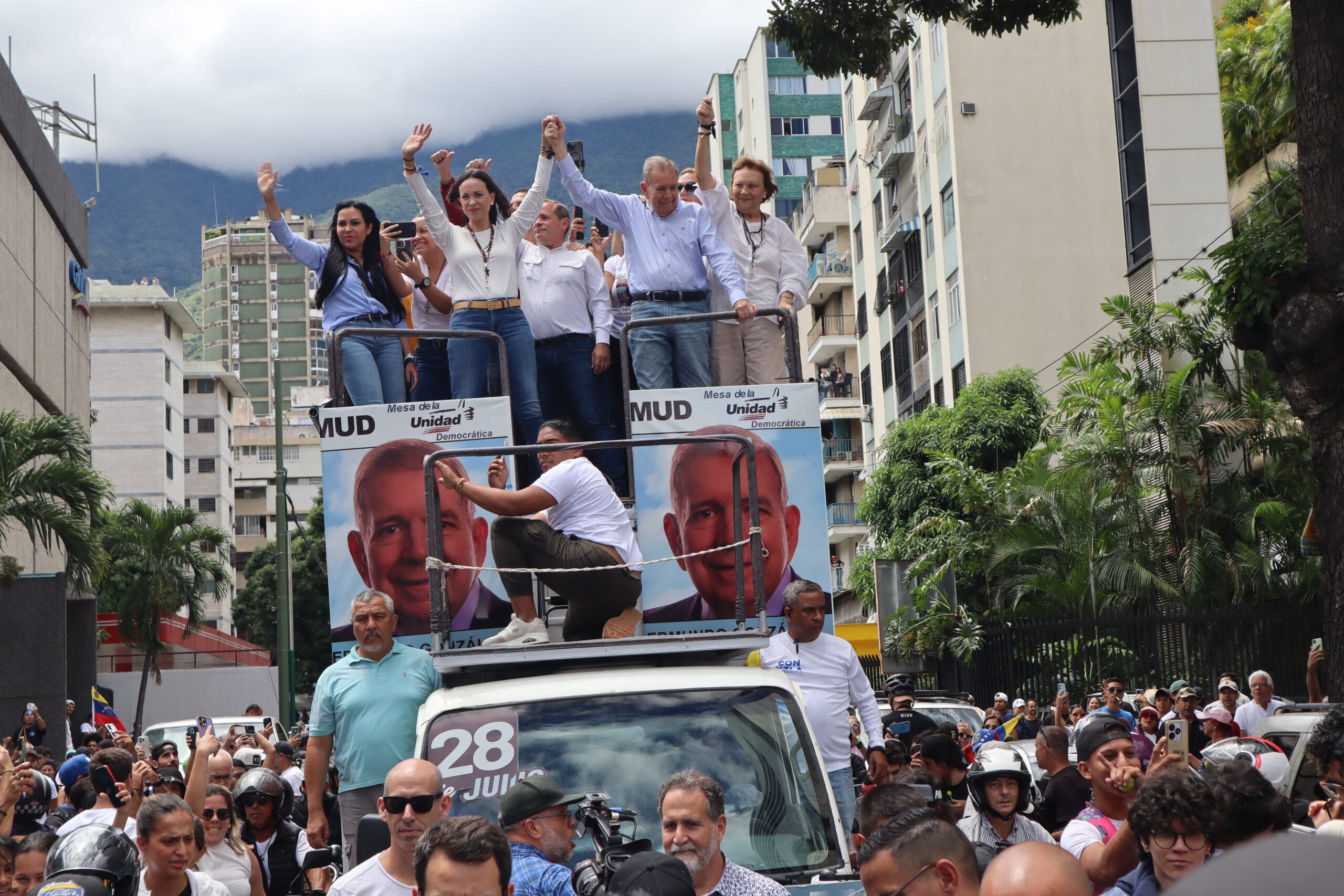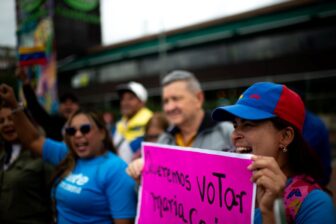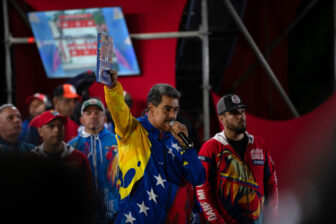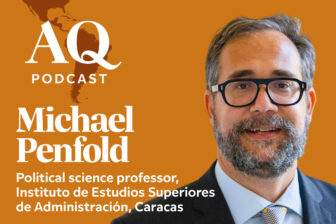CARACAS — Seven days after Venezuela’s disputed presidential election, the contest remains a seemingly intractable showdown, with an incumbent insisting on an unproven victory and opposition leaders urging international support to dislodge a dictator unwilling to cede power.
With President Nicolás Maduro beefing up repression against the opposition to silence massive demonstrations in favor of retired diplomat Edmundo González Urrutia, the international community continues to call for dialogue between the two sides to build a peaceful solution. On Sunday, presidents and prime ministers of seven European Union countries exhorted Maduro’s regime to “release promptly all the tally sheets” to guarantee the full transparency and integrity of the electoral process held on July 28.
About 20 nations have pushed Maduro to present a complete and verifiable vote tabulation to no avail, while U.S. Secretary of State Antony Blinken recognized that González won the most votes in the contest. Meanwhile, the Organization of American States failed to pass last week a resolution requiring the electoral authorities to publish detailed election results, setting the stage for arduous negotiations that may not bring the needed democratic transition to this country. Of these efforts, the one most likely to influence Maduro—if any—may be the initiative pushed by Brazil, Mexico, and Colombia, seeking impartial verification of the results and facilitating talks between the two sides. These three countries are set to send their foreign affairs ministers to Venezuela’s capital this week.
As the international community follows the events closely, the government’s legal and political post-election strategy of proclaiming Maduro’s victory for a third term has caused understandable outrage. “This is the only case where the appointment of a [Venezuelan] president has been made without tallies, verification, without absolutely anything. This is just Maduro’s self-proclamation,” José Ignacio Hernández, a Venezuelan law professor in Boston, told AQ.
While Maduro may be attempting to go “full Ortega“—following the mold of Nicaragua’s dictator—there are still other paths the country could take. Just as Maduro is unlikely to relinquish power without a fight, Venezuelans are unlikely to accept a tainted election passively. From here, possible scenarios include the government violently and successfully stifling dissent as happened after other elections celebrated in the past decade; the release of a new election tally with verifiable evidence; or a negotiated solution between the government and the opposition.
Any attempt to transition would involve more than merely addressing the presidency. The ruling party, the United Socialist Party of Venezuela (PSUV), controls nearly every relevant institution: the Supreme Court, the Office of the Attorney General, the National Assembly, media outlets, the electoral authorities, and the armed forces. Nevertheless, Chavismo—the current government’s ideology—seems weaker than ever: 75% of Venezuelans want a change in leadership. Even in the poorest barrios, former Chavista strongholds, support for Maduro has eroded.
Maduro’s response will likely affect Chavismo as well. The political movement named after late President Hugo Chávez Frías is not a monolithic bloc, and in the coming days and weeks, we may see internal fractures that could weaken the dominant coalition. Even 10% of the most orthodox Chavistas are open to considering what change might mean. Any significant rift with reformist sub-coalitions could jeopardize Chavismo’s hold on power.
Regional references
We have seen a few instances of regional dictators accepting defeat, such as Augusto Pinochet in Chile in 1988. “I will respect the verdict” of the people, the former dictator Pinochet said the day after the elections. Still, he remained the country’s commander-in-chief until 1998 and was never convicted in Chilean court.
But now, instead of immediately admitting defeat, Maduro and his inner circle may use recognition of election results as a negotiation tool, like when Daniel Ortega of the Sandinista National Liberation Front handed over power to Violeta Chamorro of the National Opposition Union in Nicaragua in 1990, partly in exchange for letting his brother Humberto Ortega maintain control of the military.
Alternatively, a fracture within the ruling coalition could lead to an annulment of the vote count, as seen when Bolivia’s Congress annulled elections in 2019 due to allegations of fraud. Nonetheless, this latter scenario appears increasingly unlikely, with Venezuelan government leaders adamant about the results and standing little chance to win in a new, fair election.
“It is very likely that some factions won’t do it,” Venezuelan political scientist John Magdaleno told AQ in Caracas. While the military’s top echelons remain loyal to Maduro, we could witness a bottom-up rebellion from civilians and lower and mid-level military personnel. Many are frustrated by low wages and do not want to repress their fellow citizens.
Continuing with massive electoral fraud makes mass mobilizations inevitable. The day after the elections, protests and violence erupted spontaneously in Caracas. After choosing not to recognize the results, the regime is faced with a new crucial choice: whether or not to resort to increasingly violent repression; demonstrations continue even though security forces and have already made more than 2,000 arrests over the past week and Maduro has said that Machado and González “should be behind bars” for 30 years.
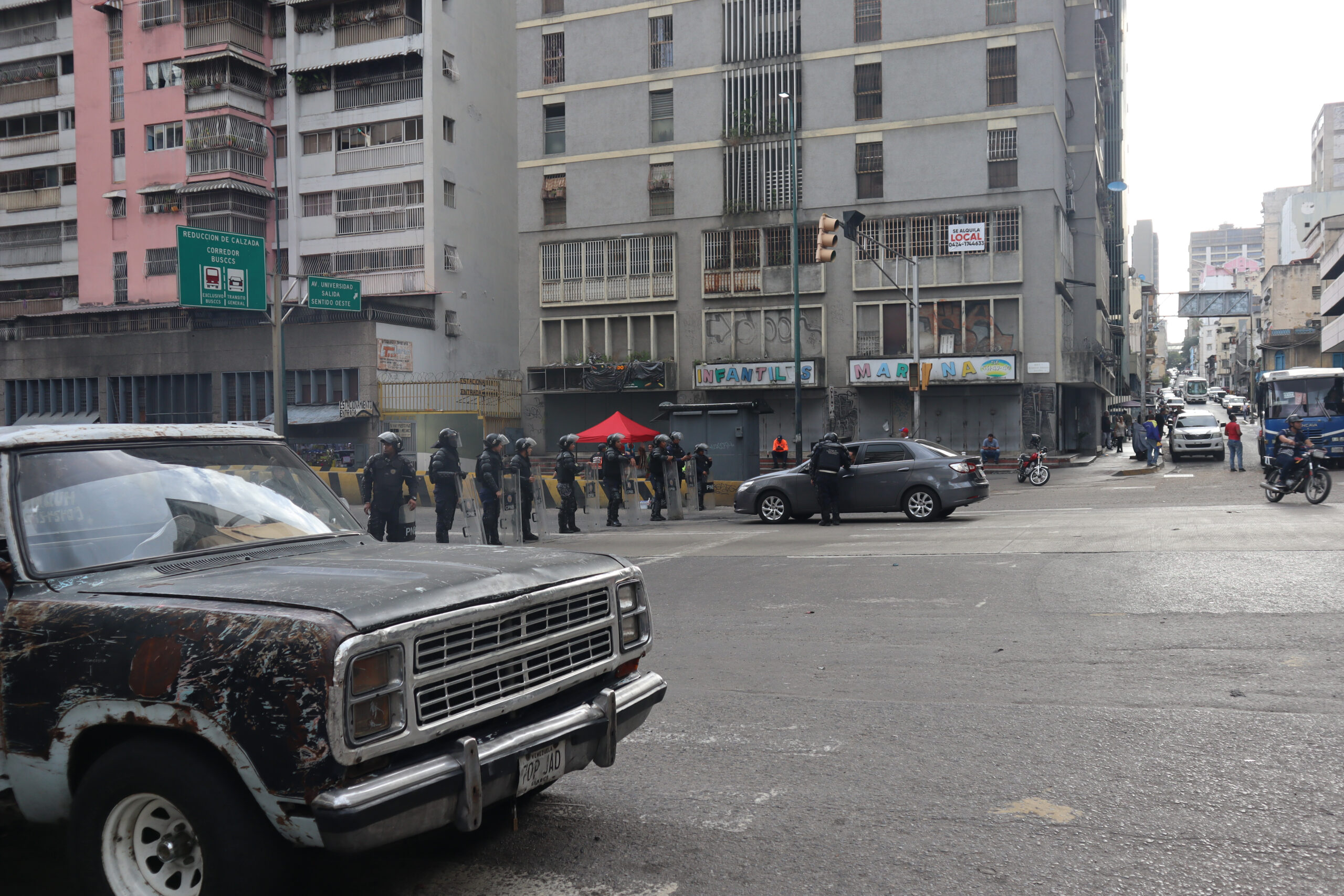
A transition process?
González and Machado have announced they are prepared to include the military in an eventual transition process. “There are many sectors of Chavismo that are looking for me,” Machado told AQ a few days before the election. She explained how some military members have come to her, trying to understand what a transition would look like and how they can form part of it.
However, the military is a top-down organization, making it harder for a bottom-up rebellion to succeed. The military’s top brass has more to lose than the lower ranks. If Maduro’s government falls, many must give up lucrative state corruption schemes and face criminal charges.
Both internal and external pressures will be necessary to compel the ruling coalition to relinquish power. Most nations worldwide have already signaled that they will not ignore the situation. “The international community has a great responsibility,” Machado told AQ.
Amidst ongoing conflicts in Russia, Ukraine and the Middle East, Venezuela could easily fall down the priority list of its international partners. Yet Machado is confident that the international community will not normalize relations with the regime. “This is not just another election. It is the last opportunity,” she said.
The options left
Successful transitions often require balancing a hard and soft line. This is where Machado and her “accidental” presidential pick, González Urrutia, could emerge as a strong blend. Machado is known for her firmness and resolve, while González Urrutia brings a diplomatic touch and a focus on peace and reconciliation. Although Machado has vowed not to allow total impunity, this leadership duo must offer high-ranking government officials a viable exit strategy, including appropriate incentives.
“There is no transition without transactions,” Ángel Alvarado, senior fellow in the Department of Economics at the University of Pennsylvania and founder of the Venezuelan Finance Observatory, told AQ in Caracas.
In the initial phase, the opposition failed to involve the right stakeholders and create conditions that would make it less daunting for the government to cede power. They may have assumed that a landslide victory alone would suffice. With a shift in strategy, the opposition might still mobilize and engage key stakeholders in a second phase. This will require a nuanced approach characterized by empathy and extensive dialogue to understand the motivations of key stakeholders and what they stand to win and lose by defecting from the government.
Resolving the current stalemate will be challenging—but it is not impossible.



